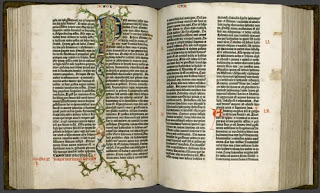
In anticipation of the New Year, I'd like to hear your resolution for a work of literature that you're planning to read sometime in 2009, along with an explanation of why you feel you need to read it.
Having been a blogger since my early childhood, I have decided to incorporate this useful tool into my teaching. Instructions: At the end of each month, I will award you 2 points for each meaningful post, with a maximum score of 12/10. Be sure to read what others have written - no credit for repetition.


 (Woody Allen)
(Woody Allen) 

In many works of literature, a physical journey -the literal movement from one place to another - plays a central role. Choose a novel, play, or epic poem in which a physical journey is an important element and discuss how the journey adds to the meaning of the work as a whole. Avoid mere plot summary.
(Briefly sketch out an argument for addressing the prompt above by referring to a specific work of literary merit.)





 This past Tuesday night, we witnessed history in the making. It seems that everyone - politicians, historians, pundits, writers, celebrities - is trying to weigh in and capture the magnitude of the moment. Please attach a quote from someone that you think accurately puts into perspective the significance of this moment in history and explain your thoughts on why you selected the particular quotation.
This past Tuesday night, we witnessed history in the making. It seems that everyone - politicians, historians, pundits, writers, celebrities - is trying to weigh in and capture the magnitude of the moment. Please attach a quote from someone that you think accurately puts into perspective the significance of this moment in history and explain your thoughts on why you selected the particular quotation.

 comments.
comments.


